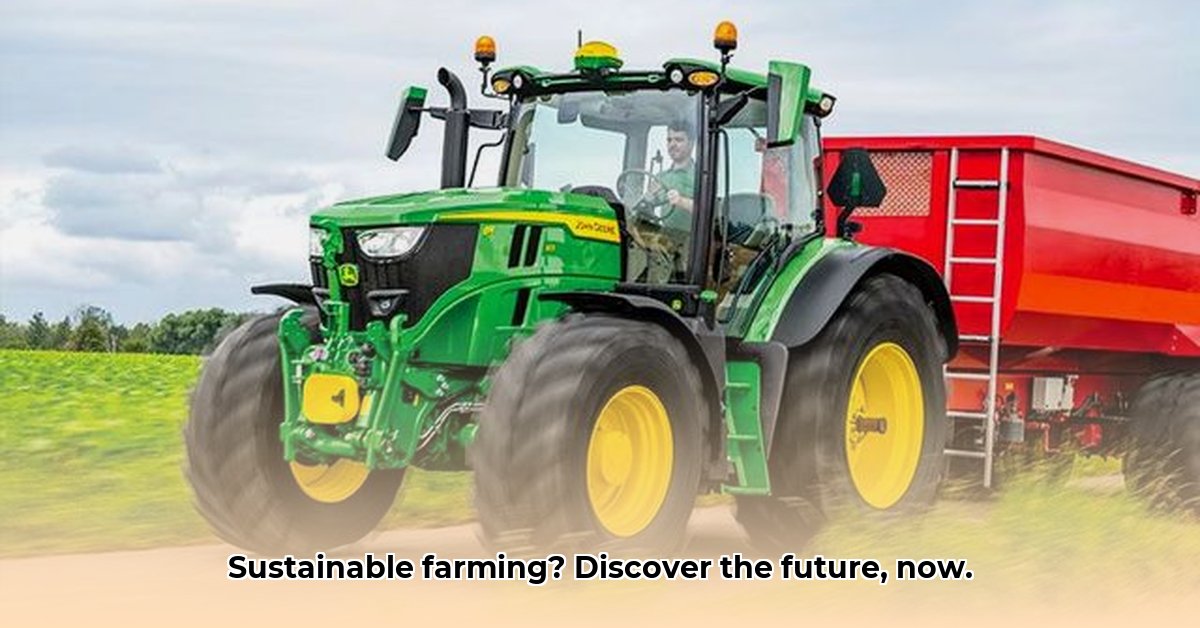
Tractor Central Menomonie is more than just a tractor dealership; it's a cornerstone of the Menomonie, Wisconsin agricultural community, actively contributing to the increasingly vital pursuit of sustainable farming practices. This article analyzes Tractor Central's role in sustainable agriculture, highlighting its strengths, acknowledging limitations, and offering actionable recommendations for all stakeholders. For those interested in smaller-scale sustainable farming, check out this resource on 3-point hitch tractors.
Tractor Central's Operations and Services: A Foundation of Reliability
Tractor Central Menomonie distinguishes itself through a commitment to customer success. Their comprehensive range of services, coupled with a ten-year warranty on compact utility tractors, fosters trust and minimizes operational disruptions. This extended warranty exemplifies confidence in product quality and underscores the dealership's dedication to customer satisfaction. This is particularly significant for farmers, where equipment downtime translates directly into lost revenue and missed opportunities. Furthermore, their provision of after-hours support ensures minimal interruption to crucial farming operations, a critical element in maintaining efficiency and yield.
Contributing to Sustainable Agriculture: The Indirect Impact of Reliability
The connection between reliable equipment and sustainable agriculture, while often overlooked, is undeniable. Reduced downtime, a direct result of Tractor Central's service commitment, leads to increased operational efficiency. This efficiency translates into multiple benefits including: lower fuel consumption per unit of output, minimized resource waste, and ultimately, a reduced environmental footprint. While Tractor Central hasn't yet published detailed, quantifiable data on its direct environmental impact (e.g., precise carbon emission reductions), the positive correlation between reliable machinery and sustainable farming practices is significant. This indirect contribution to environmental stewardship is crucial, and further research to quantify this impact would strengthen their position as a leader in sustainable agricultural support. How significant is the impact of reduced downtime on overall farm efficiency? This is crucial for better understanding the scale of the dealership's indirect contribution.
Opportunities for Improvement: A Path to Greater Sustainability
Sustainable agriculture demands continuous improvement and collaborative efforts. The following recommendations offer a roadmap for enhanced sustainability:
For Tractor Central Menomonie:
- Quantify Environmental Impact: Conduct a comprehensive environmental impact assessment, focusing on fuel efficiency, emissions, and other relevant metrics. This data will provide a baseline for improvement and inform future sustainability initiatives. A robust study could showcase a significant reduction in environmental impact.
- Promote Sustainable Practices Proactively: Develop and actively market services focused on eco-friendly farming techniques. This could include workshops on fuel-efficient operation, consultations on precision agriculture, and a trade-in program for older, less efficient equipment. Such initiatives would position Tractor Central as a leader in sustainable agricultural solutions.
- Enhance Transparency: Publicly share sustainability data, demonstrating commitment and fostering trust with farmers and environmentally conscious consumers. Openness about progress and challenges enhances credibility and strengthens relationships.
For Farmers:
- Prioritize Equipment Maintenance: Regular servicing minimizes downtime and optimizes fuel efficiency, directly impacting environmental sustainability and profitability.
- Adopt Precision Agriculture Techniques: Embrace modern technology to optimize planting, irrigation, and fertilization, leading to reduced resource waste and improved yields.
For Government Agencies:
- Incentivize Sustainable Practices: Provide financial incentives (tax breaks, grants) to both farmers adopting sustainable practices and dealerships like Tractor Central supporting these efforts.
- Foster Data Collaboration: Partner with businesses to collect data on the environmental impact of new agricultural technologies; this shared data informs future agricultural policies and ensures accountability.
For Investors:
- Recognize Long-Term Value: Invest in environmentally responsible companies, recognizing the long-term value and alignment with growing market trends.
- Support Sustainable Innovation: Fund research and development of sustainable agricultural technologies crucial for the future of farming.
Conclusion: A Shared Vision for a Sustainable Future
Tractor Central Menomonie has the potential to become a leading force in sustainable agriculture. By proactively collecting environmental data, promoting transparency, and collaborating with farmers, government agencies, and investors, they can dramatically amplify their positive influence. The transition to sustainable farming requires a unified approach, and Tractor Central has the potential to be a key player in this collaborative transformation; a partnership focused on creating a more sustainable and prosperous future for the agricultural community.